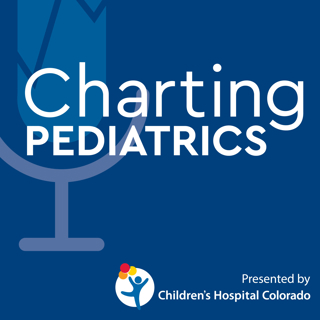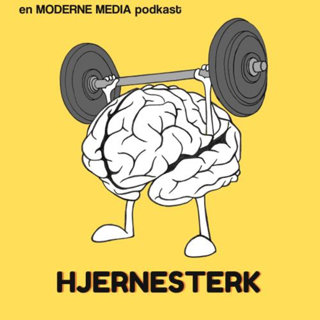
Fidget Spinners and Other Ingested Foreign Objects (S1:E7)
In this episode, Robert Kramer, MD, talks about the dangers of kids and adolescents swallowing common household toys and a recent case involving ingested fidget spinner parts. Dr. Kramer is a pediatric gastroenterologist at Children's Colorado. In this episode: Recent cases of patients ingesting fidget spinner parts Dangers of ingesting button batteries and other small components Why magnets represent a special threat for kids Age groups impacted by incidental ingestion of objects Batteries ingested into the gastrointestinal tract and how to manage them Types of injuries that can occur beyond damage to the blood vessels The importance of getting the battery out as soon as possible after ingestion
12 Sep 201718min

Teen Reproductive Health (S1:E6)
In this episode, Eliza Buyers, MD, talks about reproductive health in teenagers. Dr. Buyers is a pediatric and adolescent gynecologist at Children's Colorado and a senior instructor of obstetrics and gynecology at the University of Colorado School of Medicine. In this episode: How to talk to teens and their parents about reproductive health Implementing a universal screening approach in your practice Dealing with push back from parents Setting up one-on-one time with adolescent patients Misconceptions about teens and their reproductive health Long-acting reversible contraceptive (LARC) methods Non-contraceptive benefits of LARC Importance of hormonal therapy Reversing long-term hormonal care and contraception Talking to teens about screening for sexually transmitted diseases When to send a patient to a specialist
5 Sep 201727min

Heart Arrhythmia Diagnosis (S1:E5)
In this episode, Johannes von Alvensleben, MD, pediatric cardiologist and electrophysiologist at Children's Hospital Colorado and assistant professor of pediatrics at the University of Colorado School of Medicine, talks about heart arrhythmias. He discusses some of the most common heart arrhythmias in the primary care setting, including identifiable characteristics and treatments. In this episode: Palpitations and syncope (commonly known as fainting) as symptoms for heart arrhythmia Characteristics of common heart arrhythmias Supraventricular tachycardia (SVT) in an infant versus a young child Differences in children with syncope Inherited heart arrhythmia syndromes Importance of obtaining an electrocardiogram (ECG) Co-morbidities in children that can impact diagnosis with arrhythmias Drug-related arrhythmias in older children Treatment options for heart arrhythmias in young children The success rate of ablation for arrhythmia
29 Aug 201723min

Constipation Treatment and Management (S1:E4)
In this episode, Joel Friedlander, MD, pediatric gastroenterologist at Children's Colorado, addresses the management of constipation and the effects of leaving it untreated, especially in young children. In this episode, Dr. Friedlander discusses: Addressing constipation and uncomfortable stools early Potential long-term complications associated with constipation Two key components to focus on in the physical examination Miralax, a common used laxative for the treatment of constipation The use of lactulose for young children Categorizing medications for constipation Different medications with different adverse effects Steps to behavioral modification Constipation split between organic and functional Why medication to treat constipation won't work without a change in behavior
22 Aug 201723min

Asthma Management (S1:E3)
In this podcast, Bill Anderson, MD, co-director of the multidisciplinary Asthma Programat Children's Colorado and assistant professor of pediatrics at the University of Colorado School of Medicine, talks about asthma. He discusses challenges in the management of asthma, the effect of asthma on pediatric patients and treatment options now available. In this episode, Dr. Anderson discusses: Common challenges for managing asthma in pediatric patients Factors that come into play when choosing controller medications Why steroids are better suited for atopic patients Teaching patients and families how to use a spacer How co-morbidities affect children with asthma The impact that psychosocial factors have on asthma Working with social workers to help families overcome hurdles Latest treatment options for treating pediatric asthma Overcoming the adherence barrier using technology Natural medications available to pediatric asthma patients Advice for people with dog allergies
22 Aug 201720min

Approaching Concussions in Primary Care (S1:E2)
In this episode, Julie Wilson, MD, co-director of the Concussion Program at Children's Colorado and assistant professor of orthopedics at the University of Colorado School of Medicine, discusses pediatric concussions in sports. She also talks about the concussion recovery process, working with parents and coaches to return young athletes to play and the classroom, comorbidities that impact concussion recovery, and more. In this episode, Dr. Wilson discusses: The signs and symptoms of a concussion in a young or adolescent patient Why grading scales for concussions no longer exist Comorbidities that can impact concussion recovery How long a patient needs to rest after a concussion Current guidelines on concussions in sports "Return to play" concussion protocol is and why it's important How to address parent concerns in a treatment plan The correlation between concussion rates and sports How the primary care provider can address the whole patient as they treat for a concussion Red flags in concussion treatment How many concussions are too many Latest treatment options for concussion management See our clinical care guidelines from Children's Hospital Colorado - for concussion (.pdf).
22 Aug 201720min

Alleviating Seasonal Allergies (S1:E1)
In this episode, Daniel Searing, MD, Professor of pediatrics and allergies at Children's Colorado, talks about seasonal allergies and pollen. He discusses the effects of pollen, how to treat and alleviate allergies, and more. In this episode, Dr. Searing discusses: Pollen and how it affects allergies Why cottonwood trees are a big pollinator, especially in the springtime Why rain and humidity shut down pollen levels Why Colorado's climate makes people more susceptible to allergies How allergy symptoms will vary from year to year The importance of monitoring the quantitative level of pollen in the environment How physicians should manage the initial approach to a child with allergy symptoms Key features to look out for Why treating pollen allergies with persistent treatment is more effective What role the prescription drug Montelukast plays in treating allergic rhinitis What you can do to help prevent pollen from spreading Which medicines and therapies can help alleviate allergies When to see a doctor for seasonal allergies The approach of an immunotherapy treatment plan and the two phases of a typical treatment schedule
11 Aug 201722min




















